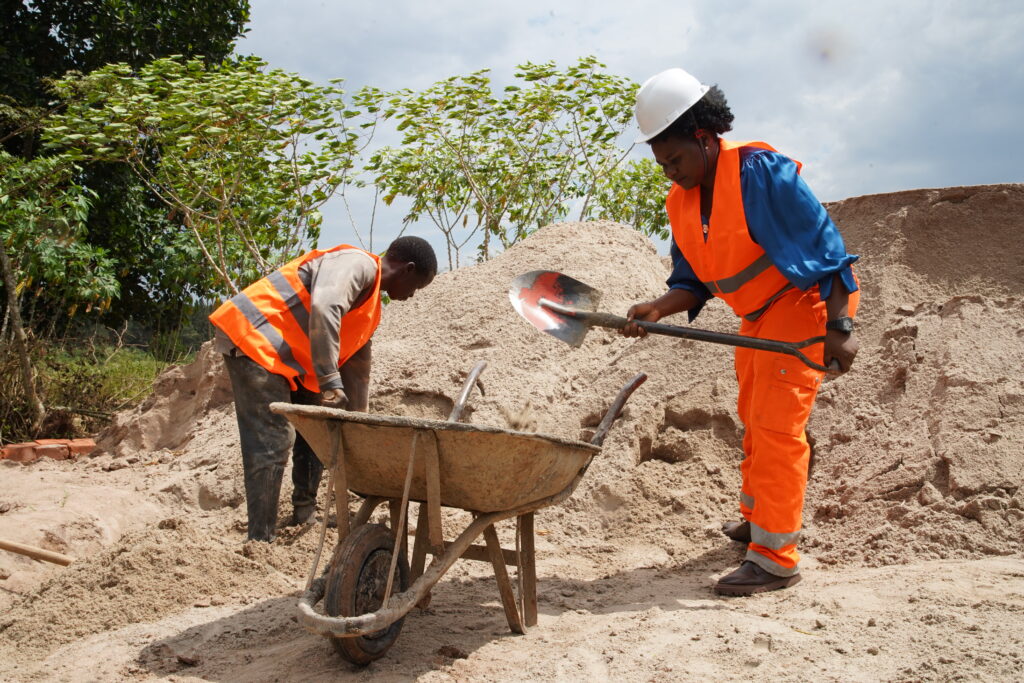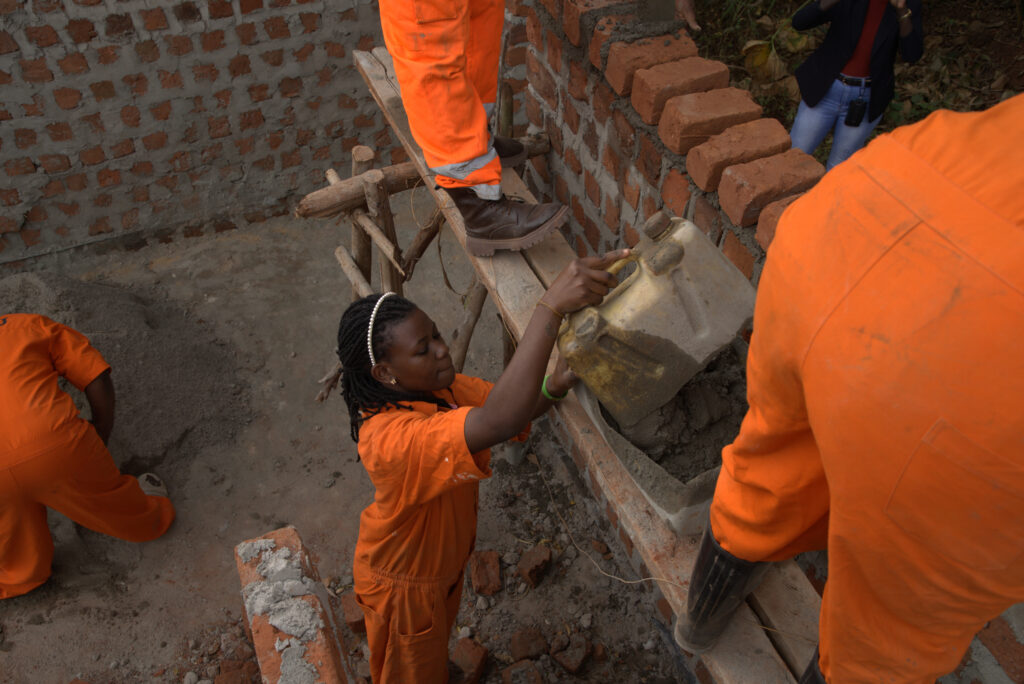When a career in journalism took too long to fruit, Sandra Nalubwama ventured into marketing construction materials to survive.
“I remember telling a client who wanted adverts that I could market his products. I had to find ways to get money since the journalism thing wasn’t working out for me as I had imagined,” recalls Nalubwama.
So for the next few months, Nalubwama moved around on construction sites to market her client’s roof tiles.
She noticed that most sites had women who were working as porters, painters, and other menial jobs, and as she interacted with them, she noticed something else.
They all had one thing in common.
“I remember seeing women work on different sites, and I wanted to join. My then boss and the women on the sites encouraged me to join the industry,” she recalls.
Joining them wasn’t an issue, there was money that she could earn for herself. The industry was very hostile to women, there was a challenge of payment, respect, harassment, allocation of work on site and so much more. The underlying factor was men.
As a journalist, she knew the issues of women and she understood how much women are affected by the various factors that impede their success.
After working on different sites, enough was enough.
She realized that there was a need for a women-led entity that would put the needs of women first. However, it was almost impossible to do this alone.
“You would go to the site and the hygiene areas are not catered for women. The whole place oozed male energy and you could tell that women were not part of the site plan,” she explains.

Claire Nakibirango loads sand on a wheel barrow together with a male colleague at a construction site. She has been in construct as a builder since 2007. Photo by Richard Mugambe.
In 2019, she decided to start an association that sought to bring women together as a pool for better representation in the construction and real estate industry.
The goal was to have all fields of engineers, architects, interior designers, general laborers, and everyone who contributed to the process of construction.
Before she could get Women in Construction off the ground, Nalubwama spent months networking with women construction workers to widen her pool of skilled women on the team.
She then teamed up with a few of the ladies she had met when she started in the industry to start the Women in Construction Association that later birthed the company Mutindo Women.
A gender ‘injustice’
The construction industry contributes over 12% of Uganda’s gross domestic product (GDP) and has witnessed steady growth for the last 20 years. However, the statistics on women’s contribution to this sector are not available.
Many of the women in construction attest to the fact that the industry is not women-friendly given the attitudes of the men who believe that it’s a man’s world. From the way they are addressed to the allocation of work, many women claim that they are harassed by men and are put at greater risk of quitting the business altogether.
Claire Nakibirango is a civil engineer and has been in construction for close to 17 years. When she was starting as a site engineer, she was undermined by the men who couldn’t accept that a woman was leading the construction.
“It’s not written anywhere that construction is only for men, it’s the mindset. Sadly, when I started we had to prove that we belonged here. Imagine convincing uneducated men that you’re qualified,” says Nakibirango. “It’s still an issue.”
For Nakibirango, finally finding a space where they could come together as women to put a united front and work together was a long overdue milestone.
“This sector has money, but we are limited by mindset,” she says, adding that “the men have played a big role in not providing an inclusive environment but even as women, we needed to step up and show up.”

A woman casual laborer delivers mortar during construction. Photo by Richard Mugambe
Not only do women in construction believe that the under-representation of women in the sector is an “injustice” to women who work blue-collar jobs, but it also prevents more women from entering these fields.
“Construction is a job that has a lot of money and we want to see more women earn from such careers while also maintaining safety, being respected, and given equal opportunity,” Nakibirango says.
In Uganda, According to the Bureau of Labor Statistics, in 2022, women made up a bit more than 58% of the labor force, but only around 6.5% of them worked in male-dominated occupations.
The statistics however suggest that while progress has been made and women’s participation in these fields has been increasing in recent years, they remain underrepresented compared to men.
Changing the Narrative.
“The assumptions and the way you are treated by people who have not met you yet are going to be based on your gender,” says Architect Namayanja Jacqueline, the President of Uganda Society of Architect .
In a male-dominated industry like construction, more and more women are pushing through.
“Women have to realize that there is more to construction than just the heavy lifting. There is the back end that also requires their effort,” Namayanja states.
Normative attitudes and stereotypes in the industry have kept changing over time. In construction and real estate, men are playing pivotal roles in supporting women in the industry.
“I have been in this industry for years, but I have to confess that the way we were received years ago has improved. Of course, there are still concerns but now you sit with a man and he listens to your opinion,” Claire Nakibirango explains.
Mutindo Women has built over 15 houses across Uganda since its inception in 2019. This feat has been achieved with the support of men with whom they collaborate within construction.
Men and Women have different structures which give an edge over the other. While women can work with the support of machinery, for organizations like Mutindo whose labor is mostly manual, the men play a crucial role in supporting women with the labor that is beyond their muscle power.
“The energy a woman has in comparison to a man is not comparable. We work with men on our sites and it eases most of the work,” Maria Namyalo, a general laborer explains.
Many of the women in Mutindo attribute their mentorship and training to men from college days to site mentorship.
An Uphill battle.
While initiatives like Mutindo Women strive to empower women in construction, there still more to do against entrenched stereotypes and societal norms.
Doubts about women’s competence in structural planning and construction perpetuate gender biases, hindering women’s advancement in the field.
“You get to a client and he or she doubts you. There have been times we have drawn plans and we are turned down just because we are women. What is more sad is that women are the biggest doubters,” Nalubwama explains.
The absence of statistical data on women’s contribution to Uganda’s construction sector reflects a broader problem of underrepresentation.
Recent News
© 2022 - Media Challenge Initiative | All Rights Reserved .


